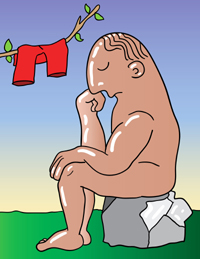Can Wikipedia handle the truth?


Wikipedia has an aversion to truth, as I discussed in “Why Digg fraud, Google bombing, Wikipedia vandalism will not be stopped.”
Wikipedia co-founder Larry Sanger decries the “serious and endemic problems” afflicting Wikipedia as I put forth in “Web 2.0 smackdown: intellectuals vs. amateurs in Citizendium.”
Sanger describes an ineffective and abusive “amateur” Wikipedia community:
Michael Arrington has publicly admitted fears of intimidation by Wikipedians has dissuaded him from attempting to correct errors in Wikipedia’s TechCrunch entry:The community does not enforce its own rules effectively or consistently. Consequently, administrators and ordinary participants alike are able essentially to act abusively with impunity, which begets a never-ending cycle of abuse.
While wikipedia appears to be open to all, I’ve seen numerous examples of changes getting immediately deleted for what appears to be political reasons rather than the pursuit of pure knowledge. And I’ve also seen people be attacked for making changes that appear to be factual and correct.
The TechCrunch listing on wikipedia has a number of errors. But there is no way in hell I’d ever think about fixing those errors. The wikipedia community has completely intimidated me to the point where making a change to that site is unthinkable.
Web 2.0 phenomenon TechCrunch has apparently resigned itself to an untruthful Wikipedia entry.
What about Bill Gate's Microsoft Wikipedia entries? Is Microsoft intimidated by Wikipedians as well?
Does Microsoft believe changes to the site are “unthinkable”?
The Associated Press is reporting that Microsoft has acknowledged it approached a writer and "offered to pay him for the time it would take to correct what the company was sure were inaccuracies in Wikipedia articles on an open-source document standard and a rival format put forward by Microsoft":
Catherine Brooker, a spokeswoman for Microsoft, said she believed the articles were heavily written by people at IBM Corp., which is a big supporter of the open-source standard...
Brooker said Microsoft had gotten nowhere in trying to flag the purported mistakes to Wikipedia's volunteer editors, so it sought an independent expert who could determine whether changes were necessary and enter them on Wikipedia. Brooker said Microsoft believed that having an independent source would be key in getting the changes to stick, that is, to not have them just overruled by other Wikipedia writers.
Brooker said Microsoft and the writer, Rick Jelliffe, (a technologist) had not determined a price and no money had changed hands, but they had agreed that the company would not be allowed to review his writing before submission. Brooker said Microsoft had never previously hired someone to influence a Wikipedia article.
Wikipedia co-founder Jimmy Wales is cited as admonishing Microsoft:
Wales said the proper course would have been for Microsoft to write or commission a "white paper" on the subject with its interpretation of the facts, post it to an outside Web site and then link to it in the Wikipedia articles' discussion forums.
"It seems like a much better, transparent, straightforward way," Wales said.
Wales' convoluted notion of "transparency" and "straightforwardness" breeds the non-truths at Wikipedia.
Wales has an aversion to direct sourcing of facts; He apparently doesn't believe in "facts."
Shouldn't directly sourced and attrributed facts be the objective of an "encyclopedia," not third-party, twice-removed "interpretations" of the facts?